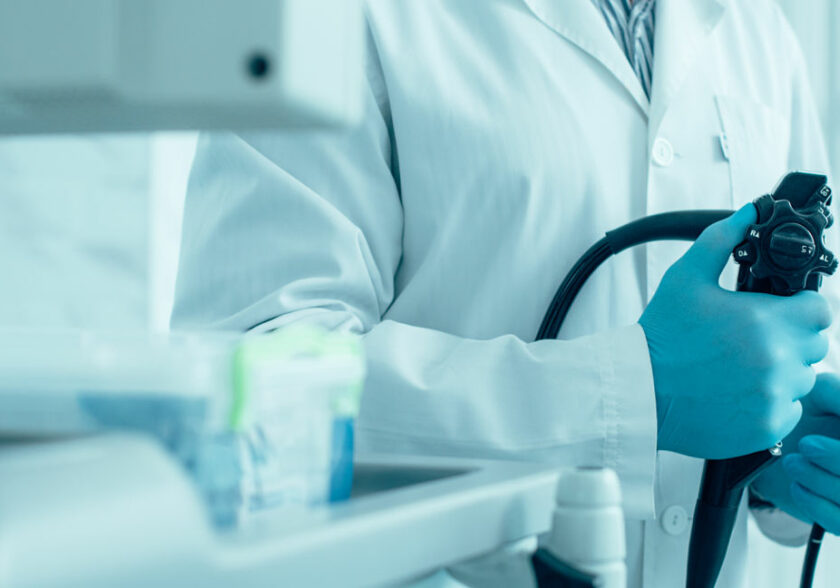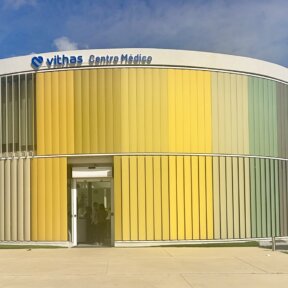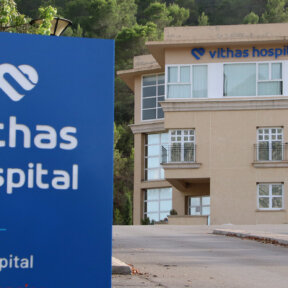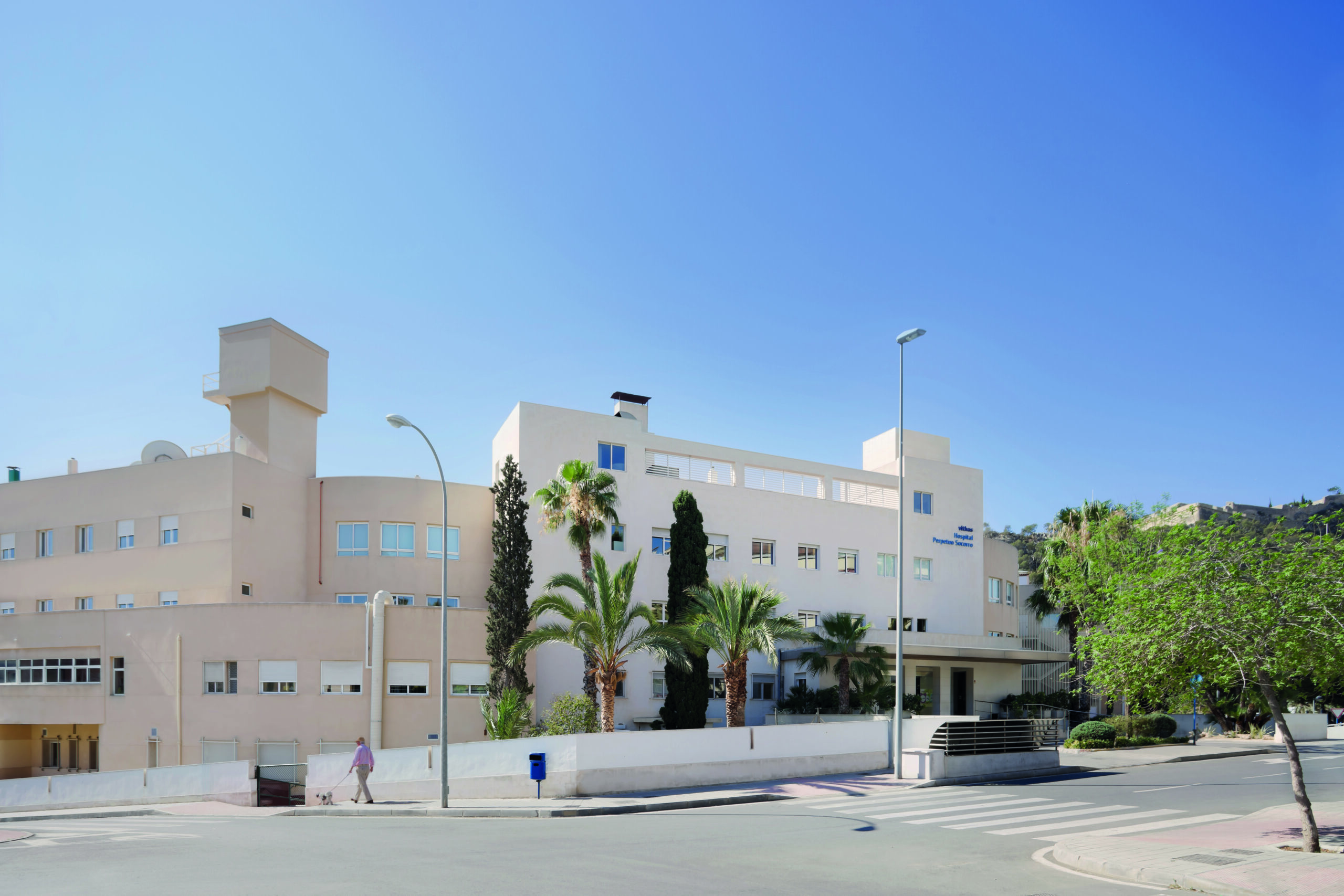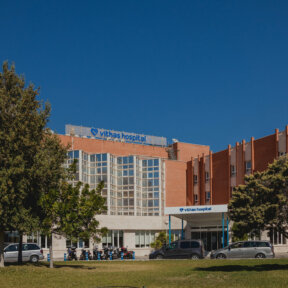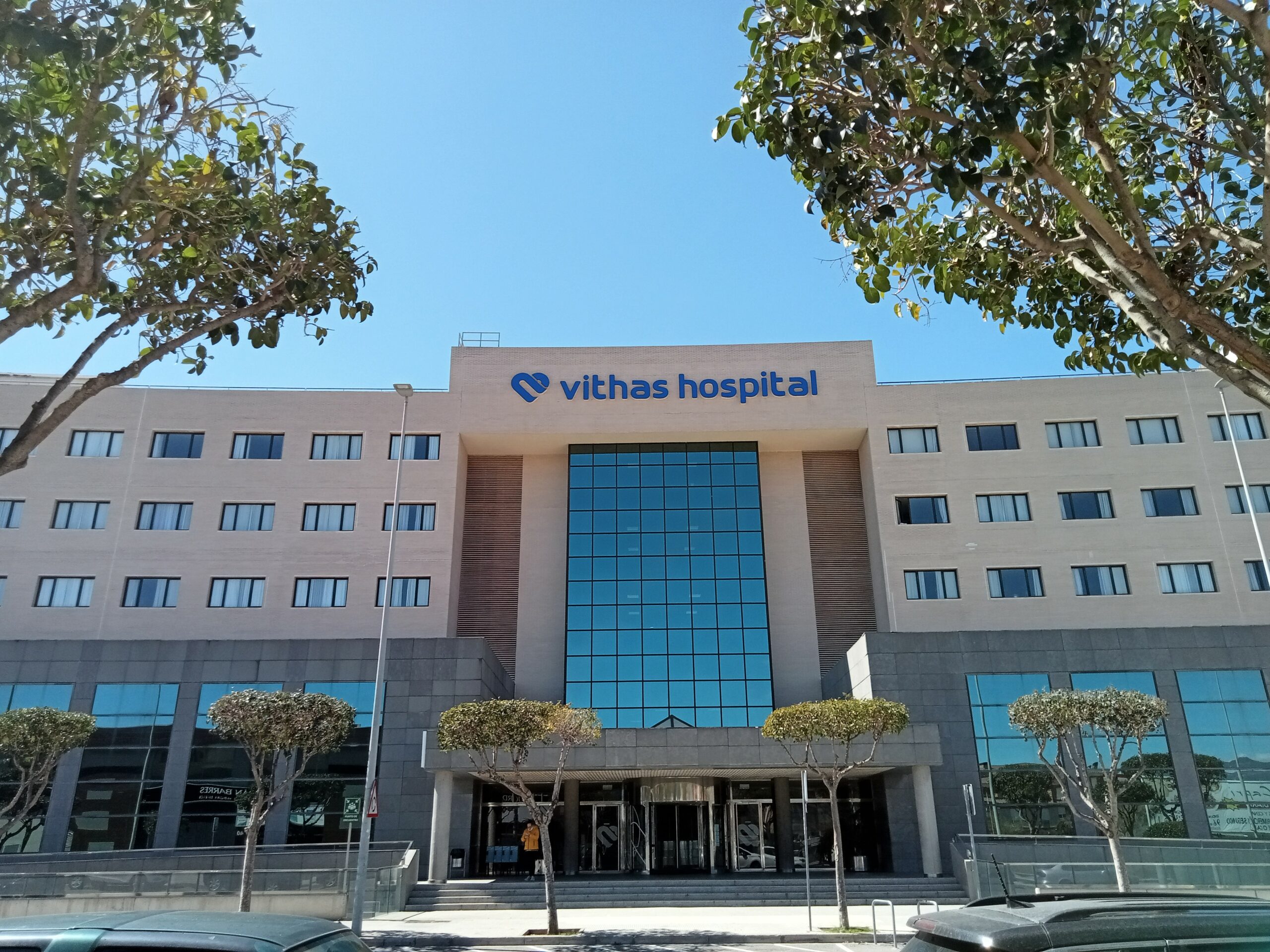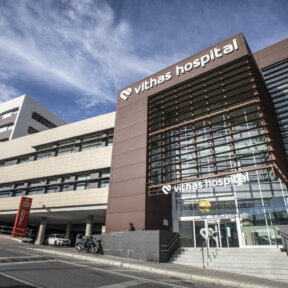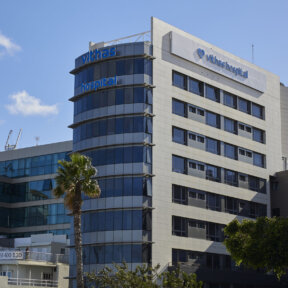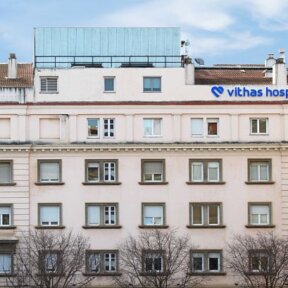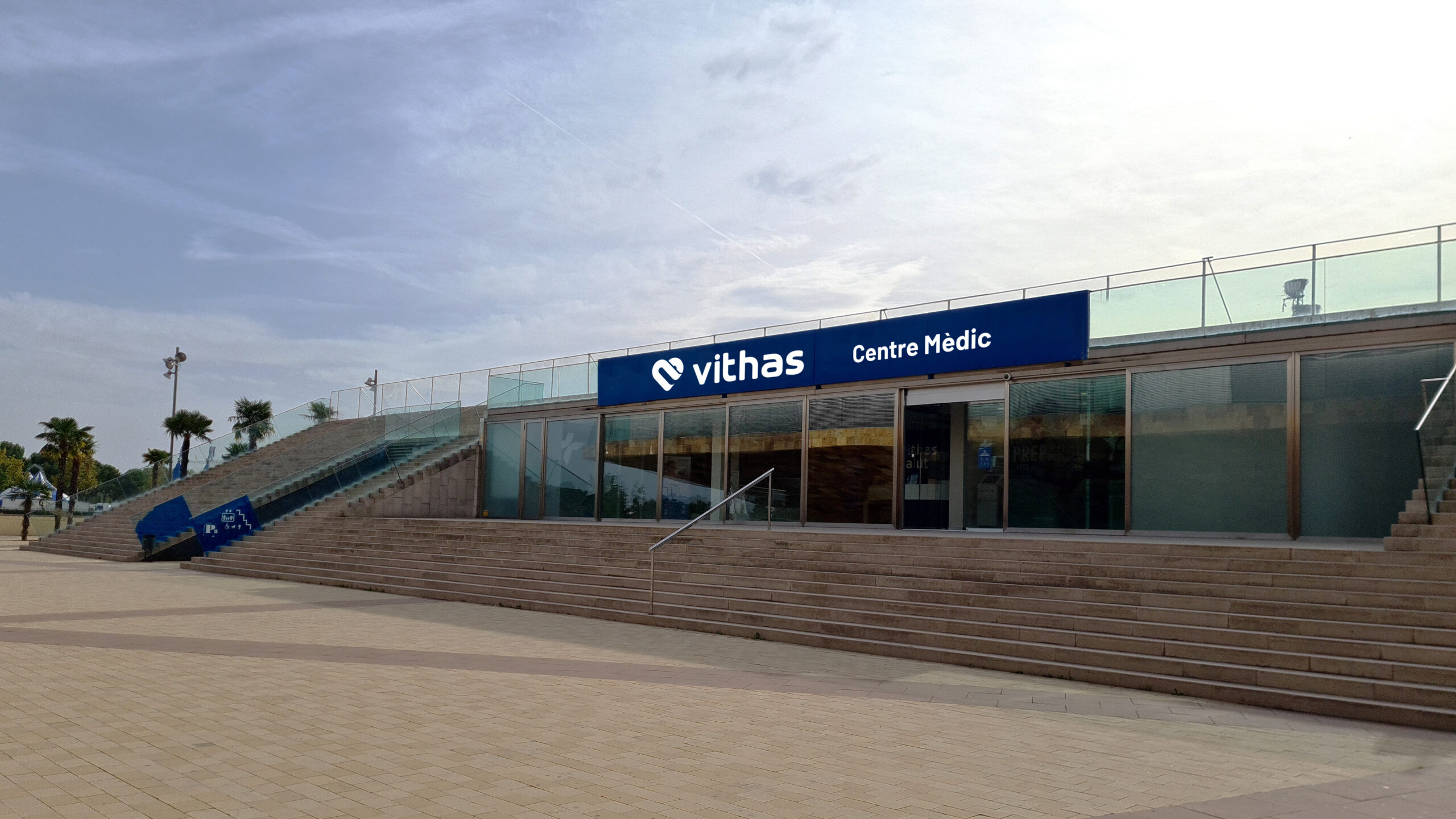What is the digestive system unit?
The digestive system speciality is concerned with the study of the entire gastrointestinal tract, the liver, bile ducts and pancreas.
This speciality offers techniques for diagnosing and treating diseases affecting these organs, with monographic clinics for areas such as inflammatory bowel disease, hepatology, biliary-pancreatic and functional disorders.
Endoscopy is a cross-sectional area with techniques for diagnosing and treating conditions in the affected organs.
Which patients is it for?
Digestive system diseases are some of the most common. Our department deals with everything from early diagnosis (e.g. colon cancer screening) to diagnosis and treatment of conditions with symptoms related to the gastrointestinal tract, liver, bile ducts and pancreas.
Main conditions and diseases
- Zenker’s diverticulum
- Achalasia
- Barrett’s oesophagus
- Gastroesophageal reflux disease
- Peptic ulcer
- Oesophageal, heart, gastric and duodenal cancer
- Gastric polyps
- Coeliac disease
- Colon polyps
- Colon cancer
- Colon diverticula
- Chronic liver disease and cirrhosis
- Bile duct lithiasis
- Wilson’s disease
- Autoimmune liver disease
- Acute pancreatitis
- Chronic pancreatitis
- Autoimmune pancreatitis
Main diagnostic resources and technology
- Upper digestive endoscopy
- Colonoscopy
- Endoscopic ultrasound
- Fine-needle aspiration puncture/ultrasound-guided biopsies of submucosal, pancreatic, biliary lesions and lymphadenopathy
- Enteroscopy
- Endoscopic capsule
- Endoscopic Retrograde Cholangiopancreatography (ERCP)
- Cholangioscopy/Pancreatoscopy
- pHmetry
- Manometry
- Helicobacter pylorii breath tests
- Lactose, fructose and sorbitol intolerance test
- Bacterial overgrowth test
Main treatments
- Polypectomy/Mucosectomy/Endoscopic Submucosal Dissection
- Zenker’s diverticulotomy
- Peroral Endoscopic Myotomy (POEM) and variants
- Rubber band ligation
- Injection of haemostatic agents
- Prosthesis placement
- Endoscopic ultrasound-guided drainage of pancreatic collections
- Radiofrequency for treating Barrett's oesophagus
- Foreign body extraction
- Stenosis dilation
- Intragastric balloon placement for obesity treatment
Areas of specialisation
- Inflammatory bowel disease
- Hepatology
- Pancreatology
- Functional disorders
- Functional tests
- Endoscopy
- Therapeutic endoscopy
Special services
Our professionals are experts at diagnosing and treating diseases of the digestive system and have all the technological resources needed to carry out their excellent work.
The colon cancer screening programme has experienced staff and high-definition endoscopes to identify lesions and remove them using the most appropriate endoscopic technique.
In the area of hepatology we have the most innovative drugs to ensure the eradication of the hepatitis C virus based on international recommendations.
Our experts in inflammatory bowel disease monitor patients thoroughly using the most appropriate technologies to ensure adherence to treatment and monitor dysplasia according to latest recommendations.
Why come to our clinic?
Our medical staff have the knowledge, training and resources to diagnose and treat all conditions affecting the digestive system. We are firmly convinced of the added value of personalised care tailored to each patient’s needs. To achieve this, we have teams of experts in the various techniques of the speciality supported by other specialities in multidisciplinary teams when necessary.
FAQs
What is a hiatal hernia?
Hiatal hernia is a fairly common disease that causes heartburn and regurgitation of acids and food. It is an alteration of the anatomy of the transition zone between the oesophagus and stomach. It is diagnosed through an upper digestive endoscopy and in its absence a radiological transit study.
The basic treatment is to decrease the acidity of the stomach by means of proton pump inhibitors (potent antacids), eating in small amounts at certain intervals. If necessary, it can be addressed surgically with a laparoscopic Nissen fundoplication.
How can colon cancer be prevented and/or diagnosed in time?
Colon cancer is the most common cancer diagnosed in both men and women. It is caused by environmental factors (dietary and hygienic) and genetic factors. It is more prevalent among people over the age of 50, so it is recommended to have a colonoscopy from that age every ten years or an occult blood test every two years. Following a Mediterranean diet (vegetables, legumes, fish and poultry) can help prevent colon cancer. You should also avoid obesity, exercise and stop smoking.
What is Barrett’s metaplasia and how is it treated?
Barrett’s metaplasia is an alteration of the oesophageal epithelium that transforms into intestinal epithelium. It is a preneoplastic lesion. It is caused by gastroesophageal reflux and, even if this is removed, Barrett’s may not decline. Barett’s may increase the risk of cancer, although this is usually low. You may be advised to undergo an endoscopy. If dysplasia (tendency to malignancy) is found, this can be treated endoscopically by radiofrequency. When there is cancer (affecting only the superficial part, the mucosa) it is removed by endoscopic mucosectomy or submucosal dissection without having to resort to surgery.
What is ulcerative colitis and Crohn’s disease?
The cause of these diseases is so far unknown. Ulcerative colitis affects the large intestine (colon) and is characterised by diarrhoea with blood, mucus and pus. It is diagnosed by colonoscopy and biopsy.
Crohn's disease can affect any part of the digestive tract. It is more common among young people and causes diarrhoea, weight loss, fistulas and stenosis. It is diagnosed by endoscopy with biopsy, CT scan, intestinal transit, capsuloendoscopy, etc.
Both are treated with diet, mesalazine, corticosteroids and anti-TNF therapy. Complications are treated with surgery.
What is acute pancreatitis and how is it treated?
Pancreatitis is an inflammation of the pancreatic gland (responsible for producing insulin and enzymes for food digestion). The most common causes are stones in the gallbladder, alcohol, increased triglycerides, certain medications and some infections.
This inflammation can be severe and can destroy the gland and nearby organs. It is diagnosed with blood tests, ultrasound and CT scan. Treatment is usually carried out in hospital through diet, rest and medication. The most frequent complications are the formation of collections, abscesses and pseudocysts that in some cases can be treated by ultrasound-guided drainage.


